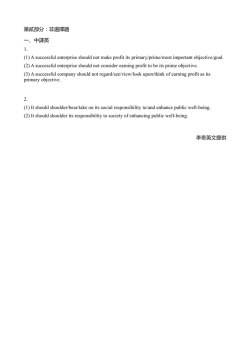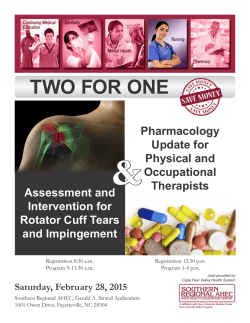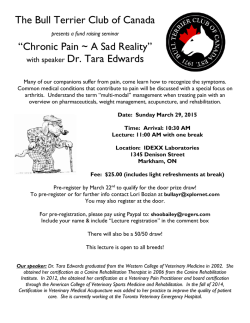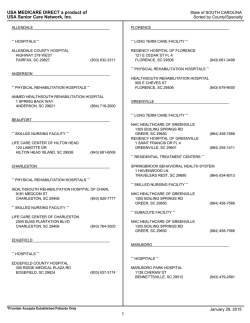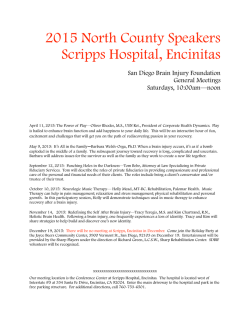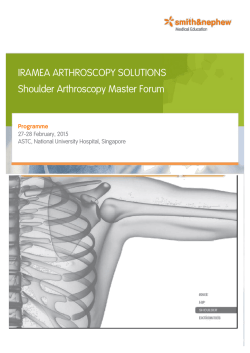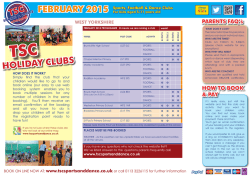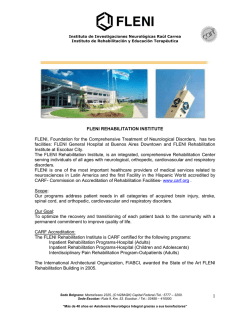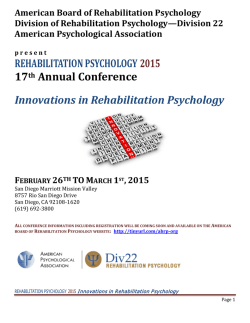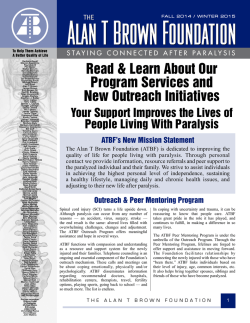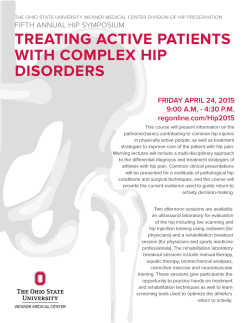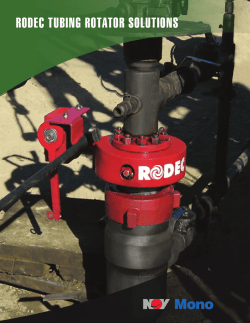
Rotator Cuff Pathology: Current Evidence for Non-Operative
About the Speaker : Todd Ellenbecker is a physical therapist and clinic director of Physiotherapy Associates Scottsdale Sports Clinic in Scottsdale, Arizona and is the Director of Sports Medicine for the ATP Tour. He received his degree in physical therapy from the University of Wisconsin-LaCrosse in 1985 and a master's degree in exercise physiology from Arizona State University in 1989. He completed a doctor of physical therapy degree from MGH –Institute of Health Professions in 2006. In addition, he is a certified sports clinical specialist, and orthopaedic clinical specialist by the American Physical Therapy Association. He is a certified strength and conditioning specialist and was awarded the Sports Medicine Professional of the Year in 2003 by the National Strength and Conditioning Association. He is a certified USPTA tennis teaching professional, and is Chairman of the USTA National Sport Science Committee. Todd is also the National Director of Clinical Research for Physiotherapy Associates. In 2008 he received the Educational Merit Award from the International Tennis Hall of Fame, and 2011 the Turner A. Blackburn Lifetime Achievement Award from the Sports Physical Therapy Section of the APTA. Ellenbecker served as the Chairman of the APTA's Shoulder Special Interest Group from 1996 to 2002 and is a manuscript reviewer for the American Journal of Sports Medicine and serves on the editorial board of the International Journal of Sports Physical Therapy and Sports Health. He has conducted and published research primarily on upper extremity athletes, as well as shoulder and elbow rehabilitation. He has conducted research and lectured internationally on shoulder and elbow rehabilitation, as well as isokinetic exercise application and musculoskeletal adaptations in elite level tennis players. He is the author of several books, “The Elbow in Sport”, “Complete Conditioning for Tennis”, “Closed Kinetic Chain Exercise”, “Strength Band Training” and “Clinical Examination of the Shoulder”. He is the editor of the second edition of “Knee Ligament Rehabilitation” and “Shoulder Rehabilitation: Non-Operative Treatment” and is co-editor of the book “The Scientific and Clinical Application of Elastic Resistance”, and most recently, “Effective Functional Progressions in Sport Rehabilitation”. Ellenbecker lives in Scottsdale Arizona with his wife Gail. Ell en Ellenbecker is the author of “Clinical Examination of the Shoulder” by Elsevier Science, 2004 Ellenbecker is the editor of “Shoulder Rotator Cuff Pathology: Current Evidence for Non-operative and post-operative rehabilitation Rehabilitation: NonOperative Treatment” by Thieme Publishing 2006 JANUARY 31, 2015 TODD S. ELLENBECKER, PT , DPT, MS, SCS, OCS, CSCS CLINIC DIRECTOR, PHYSIOTHERAPY ASSOCIATES SCOTTSDALE SPORTS CLINIC COURSE LOCATION: A.T. Still University 5850 E. Still Circle Mesa, AZ 85206 Sponsored by the ATSU Orthopedic Physical Therapy Residency Program Course Agenda SATURDAY JANUARY 31, 2015 8:00am-5:00pm COURSE DESCRIPTION: This 1 day lecture and lab course is designed to provide the clinician with an advanced understanding of the anatomy and biomechanics of the shoulder complex, to provide the framework for the development of rehabilitation programs for specific shoulder pathologies. Detailed descriptions of clinical evaluation methods and hands-on lab time are included, along with lectures on pathophysiology and classification of rotator cuff injury. Both non-operative and post -operative rotator cuff rehabilitation methods are presented. CLINICAL EVALUATION OF THE SHOULDER SHOULDER EVALUATION (LAB & DEMO) PATHOPHYSIOLOGY OF ROTATOR CUFF INJURY COURSE OBJECTIVES: LUNCH Following completion of the course the participant will be able to: NON-OPERATIVE REHABILITATION OF ROTATOR CUFF DISORDERS OVERVIEW OF CURRENT CONCEPTS IN ROTATOR CUFF REPAIR REHABILITATION & SURGERY: WHAT THIS MEANS FOR THE PHYSICAL THERAPIST THERAPEUTIC EXERCISE USING ELASTIC RESISTANCE (LAB & DEMO) CONTINUING EDUCATION CREDIT 8 CONTACT HOURS 0.8 CONTINUING EDUCATION UNITS Understand the force couples of the glenohumeral and scapulo-thoracic joints and apply these concepts in rehabilitation of specific shoulder pathologies. Perform specific evaluation techniques to identify the hyper and hypo-mobile glenohumeral joint. Utilize open and closed kinetic chain exercises to improve rotator cuff strength and scapular stabilization. Apply specific mobilization concepts for the hypomobile shoulder. Integrate resistive exercise sequences based on EMG research for strengthening the rotator cuff and scapular musculature. COURSE REGISTRATION: Name:__________________________ PT License #:___________________ Mailing Address:________________ _______________________________ City:_________State:____Zip:_____ Phone number:_________________ Email Address:__________________ Registration Fees (Lunch included) (Please check one): _____$195 _____$160 for ATSU Alumni and Clinical Instructors with ATSU Please make check payable to ATSU. Please mail payment and registration for to: Cheri Hodges c/o A.T. Still University Physical Therapy Program 5850 East Still Circle Mesa, AZ 85206 For additional information contact Cheri Hodges at [email protected] or 480-219-6189
© Copyright 2026
